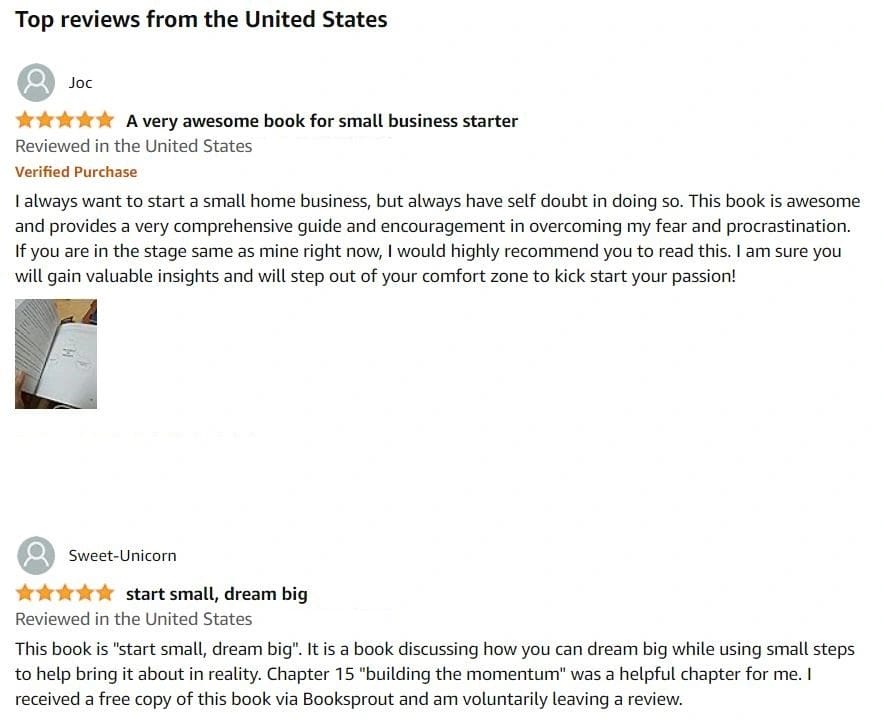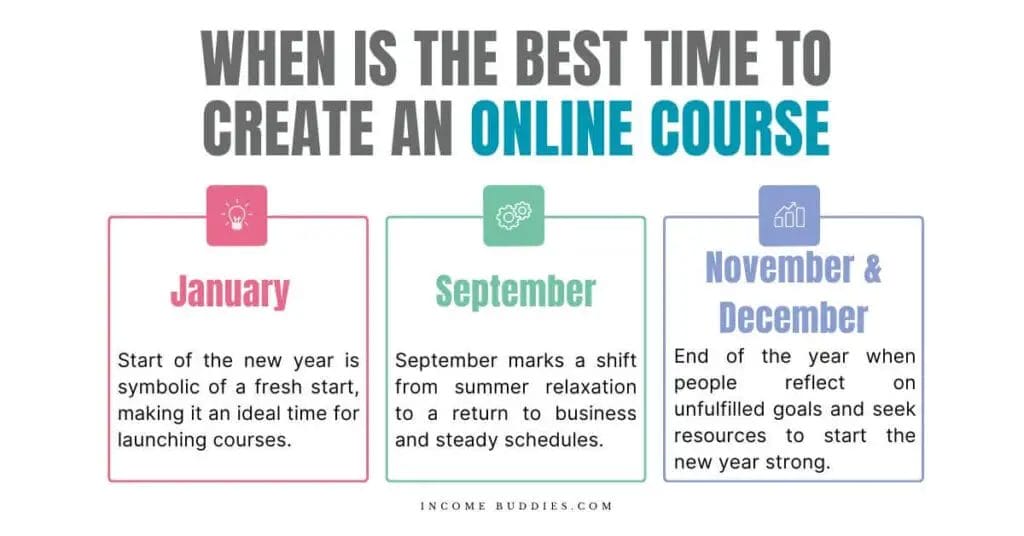How to Pre-Sell Your Online Course & Get Paid Before Launch (7 Effective Steps)
Pre-selling your online course before you create your course can save you massive amount of time as an online course creator.
Getting people to get interest in your course and buy your course before the course launch let you validate your course idea before you put in the hard work in creating the course content.
You want to avoid being in a situation of creating an online course that no one buys.
(I’ve been there and done that, it was a really costly mistake, a mistake that I later learn and grow to become a smarter course creator.)

KEY TAKEAWAYS
- Pre-selling your course begin by identifying a passion-driven, market-demanded course topic and validate its appeal.
- To build your audience you can leverage content marketing, social media, and email to build a loyal audience interested in your course.
- Crafting an engaging sales page, offer exclusive pre-sale bundles, and create a sense of urgency for early enrollment can increase your conversion rate.
How to Lay the Foundation for Pre-Selling Your Online Course Before You Create
Pre-selling an online course can be thrilling! It’s a chance to fuel your passion and share expertise while securing income upfront.
However, there is some groundwork you need to do to ensure your course captivates and converts.
Step 1. Identify Your Online Course Topic
For me, pinpointing the topic of my online course felt like uncovering a hidden treasure.
When you are finding your course topic, you need to brainstormed the subjects you’re most passionate about and considered what unique angle you can bring to the table.
It is important to choose a topic that not only excites you but also has demand in the market.
- Check out threads in online forums
- Read what your audience say in the social media groups
These can be goldmines for uncovering what potential learners are eager to know about.
Step 2. Validate Your Course Idea
Once you have your topic, validating it is your next step.
- Get started in reaching out directly to people in your network
- Ask people in relevant communities
You need to gauged the interest level. Remember it is always about ensuring that there’s a real audience for your course before investing time and resources into creating it.
A well-received course idea is like a green light telling you it’s time to proceed with confidence.
A bad response, or no response at may means there is no demand, or you are speaking with the wrong audience.
Step 3. Develop Your Course Outline
With your course idea validated, you can start crafting a detailed course outline.
Treat it as a roadmap for where you and your future students will travel together.
To outline your course effectively,
- Identify the key learning objectives.
- Break the content into digestible sections.
- Make each section build on the previous one.
You goal is to make the learning journey as smooth and impactful as possible.
A strong outline not only helps potential students understand what they’ll be learning but also keeps you organized as you create the content.
How to Pre-Sell Your Online Course, Promote Your Course and Make Money
Preselling a course means to sell your online course before it is even created or launching your new course, it means to creating a demand for your online course and make money for your online course business.
Let’s take a look at the steps and marketing channels you can use to pre-sell your course ahead of your official course launch.
1. Crafting Your Pre-Sale Strategy

I know the anticipation of launching an online course can be both thrilling and nerve-wracking.
However, by crafting a robust pre-sale strategy, you’re already on the path to getting course sales before the full course is even available.
Design an Engaging Sales Page
You need to make sure to design a sales page that captures the essence of your course.
Your course landing page is the cornerstone of your pre-sale strategy.
- Your landing page serve as a sales page, it should be visually appealing and easy to navigate.
- You need to ensure that it has a strong value proposition, compelling copy, and a clean layout, and a clear call-to-action.
- Including testimonials and a FAQ section can also bolster credibility and address any hesitations.
For your landing page, you are basically creating a part of your massive sales funnel where you funnel your prospective learners all the way to your course landing page.
Create a Sense of Urgency
Limited time only! Time is ticking! Going to end soon!
Urgency is the game of sales.
Integrate techniques to create a sense of urgency, such as
- Countdown timer
- Limited number of spots available.
You need to emphasize the exclusivity and time-sensitive nature of the offer, which can lead to a surge in early sign-ups.
By conveying that this opportunity isn’t one to miss, you’ll be tapping into a powerful psychological trigger that can significantly increase pre-sale conversions.
Decide on Your Course Pre-Selling Offers
Tailoring attractive pre-sale offers can incentivize early sign-ups.
You can create exclusive bundles or limited-time discounts for those who purchase your course before its official release.
In your pre-selling offering, you want to ensure that you highlight the benefits of early enrollment.
- Could it be bonus content?
- Offer an exclusive one-on-one coaching sessions?
- A sneak peek at the first module?
These offers raise the value of your course and encourage learners to take advantage of the pre-sale price.
3. Building Your Audience and Email List

Before launching my online course, my eBook or any of my products, I will always let my most die-hard fans know about it, these are my most engaged audience in my email list.
Your email list is always the cornerstones for any course creator aiming to sell your course effectively.
Leverage Content Marketing
Content marketing means to start by sharing valuable insights through blogs, videos, and infographics related to your course topic.
This isn’t just throwing content into the wind; it’s a strategic move to attract people genuinely interested in your subject matter.
By consistently providing useful content, you can start to build trust and establish yourself as an authority in the field, encouraging visitors to subscribe for more sage wisdom.
(As someone who love to share what I know and learn, I am highly passionate in education and coaching. Thus, for the past years I’ve been sharing my experience along the way and engaging with people like you who is reading this right now.)
You can do just the same.
If you are passionate about Yoga,
- You can share content on yoga.
- You can make video about yoga.
- You can post in yoga social groups.
Grow Your Social Media Presence

Social media is an indispensable tool for an online course creator.
I’ve a Facebook page, Instagram page and even a YouTube channel where I can potentially connect with my target audience.
(But I must admit I have not been very active on my social media for a long time)
You can leverage your social media to gain followers by offering snippets of your expertise and engaging with followers.
Each tweet, each post, and each story is a chance to direct curious minds to your presale landing page, converting them into potential customers and email subscribers.
Engage with Potential Customers Via Email
With a growing email list, you can begin nurturing relationships.
Personalized emails not only pique interest in your upcoming course but also invite feedback, fostering a community eager to learn.
This direct line of communication is crucial for pre-selling your course as it reminds subscribers of the value awaiting them, keeping them informed and ready to enroll the moment it launches.
4. Maximizing Pre-Launch Marketing

To make real money before the official course launch, I often try to focus on creating buzz and demand through strategic pre-launch marketing.
This ensures that when you start pre-selling, there’s a captivated audience ready to engage, buy and learn.
Host Webinars and Live Sessions
Hosting webinars and live sessions is a powerful way to increase your pre-sale conversion by another 5% or more.
These provide a perfect platform to showcase your expertise on the topic and spark the interest of your audience.
- Use webinar as your sales funnel.
- Set your webinar to be less than 60 minutes
- Have your webinar talking about the topic in your course.
Your webinar is like giving your potential students a teaser of the upcoming new course you are about to launch.
Engaging directly with your audience builds trust and boosts interest which is key for a successful course launch.
Use Testimonials and Social Proof
Testimonials and social proof is probably one of the most powerful tools you can use for pre-selling your course.
- “This course transformed my perspective, giving me…”
- “From rusty to razor-sharp, the practical lessons honed my abilities and…”
- “The course built my self-assurance, helping me tackle challenges with ease…”
- “Not just knowledge, but a supportive network—like-minded individuals…”
- “Mastering my schedule, the course made me…”
- “Theory to practice seamlessly—real-world scenarios and hands-on projects have …”
- “Procrastination is a thing of the past, thanks to…”
When people see others benefiting from my knowledge, they’re more likely to believe that they will too.
Gathering and displaying feedback from those who have attended your webinars or previous courses doesn’t just add legitimacy; it propels others to jump on board.

Feel like buying the book after reading the reviews and testimony?
Collaborate with Influencers and Experts
Collaboration seems to be the key to everything.
Don’t underestimate the clout of influencers and industry experts.
Collaborating with them can expand your reach and lend authority to your course.
- If someone respected in your field endorses your course, their followers are more inclined to sign up.
- If someone find your course useful, they will share with those whom they know.
Collaboration is all about creating partnerships that serve as a multiplier for your pre-selling efforts.
5. Find the best time to launch your course

I’ve made a simple study on the impact of timing of online course launch vs course sales, and I’ve found that timing like everything in life can make or break the success of your online course launch.
Best Month to Launch Your Online Course
- January is the best month to launch as people are eager to invest in their personal growth.
- September is the next best time for productivity or business course.
- November and December is the next best time in reflective to goal-setting and holiday spending habits.
Best Day of the Week to Launch Your Online Course
- Mondays have an impressive email open rates, making it the best day to launch your online course that is business related.
- Sundays stand out with impressive email open rates, making it the best day to launch your online course that is self-improvement related.
Choosing your launch date is more than dates on a calendar; they’re key to align with the rhythms of your target audience.
For those who love research and the underlying reason why each of the month or days are identified as the “best time to launch your online course”, the full detail breakdown can be found in my other article.
6. Closing the Deal with Compelling Launch Promotions

Successful pre-selling hinges on creating irresistible launch promotions that convince learners to buy the course immediately.
Looking at the common factor that lead to the success of many million dollar course creators, I’ve identified three powerful strategies to close the deal and generate revenue even before your course officially hits the market.
Execute a Dynamic Email Campaign
An effective email campaign is like a drumroll that builds excitement ahead of your course’s debut.
You start by crafting an engaging subject line and follow with an email sequence that highlights the urgency and exclusivity of your pre-sale period.
Each email ramps up the excitement, from the initial teaser to the final call to action, encouraging potential learners to commit early and secure their spot.
Example Email Sequence:
- Teaser Announcement: Hint at the upcoming opportunity.
- Value Proposition: Dive deeper into what makes my course unique.
- Urgency Email: Stress the limited time to enroll at a special price.
- Last Chance Reminder: Incite action with a deadline.
Offer Exclusive Bonuses
Bonuses will become your secret sauce to making the pre-sale offer irresistible. Your bonus can be just anything that your audience may see it as valuable.
- You may include an exclusive access to a live Q&A session.
- You will be offering some additional learning materials.
- You offer an coaching sessions for early sign-ups.
- Access to a private community or forum
- Free eBook related to the course content
These perks not only add value but also make the decision to purchase your course a no-brainer.
Highlight the Benefits of Your Course
You need to communicate the immediate and tangible benefits of your course.
In your promotion of your course, emphasize how learners will gain knowledge, acquire skills, and save money by making the decision to buy the course during the pre-sale.
Positioning these benefits front and center showcases the value of the course and tips the scales in favor of an instant purchase.
Key Benefits to Spotlight:
- Practical skills that can be applied immediately
- Access to materials ahead of the public release
- Special pricing exclusively for pre-sale participants
By implementing these targeted promotion tactics, you’ll be able to create a compelling campaign that motivates learners to buy your course without hesitation.
7. Gathering Feedback and Scaling Up

Launching your course is just the beginning; the real growth starts with keenly listening to your first batch of students.
Have an open mind and listen to their insights as you refine and amplify your online course’s reach.
Analyze Early Adopter Reviews
Is it good? Is it bad? Or is it just ‘OK’?
Diligently comb through every piece of feedback received from your early adopters.
Their reviews are a goldmine, providing clear insights into what resonates with them and what might need a pivot.
- Categorize comments to track recurring themes that may indicate areas for enhancement
- Look for comments that give you a hint that highlight the strongest aspects of your course content.
Adjust and Improve Your Course Content
Based on the reviews, start to make targeted adjustments to your course material.
You want to always ensure that improvements are not just cosmetic but add substantial value, whether that’s through additional modules or interactive elements that can foster a more successful online course.
Each tweak is a step towards excellence, keeping your content dynamic and evolving.
PS. If you know about PMP and agile principle, adopt an incremental development strategy, where each version of the course is already pretty good, and your builds upon the previous version by making it more comprehensive or better.
Expand Your Reach
With feedback-driven content updates in your pocket, you can start to shift gears to expansion.
Start turning to marketing strategies that cast a wider net, like strategic partnerships and tapping into social media channels.
Previously you are only focusing on warm audience.
Now you need to get your course in front of cold audience, who fits your course’s target audience persona.
- Promote your course to other social channels and groups
- Get your course heard by other communities
- Advertise and get your course in front of more people.
By implementing this feedback loop, you can confidently scale your online course—making it better with each iteration and growing your student base along with it.
- 7 Best Teachable Alternative for Course Creators (Free and Paid)
- LearnWorlds Features: In-Depth eLearning LMS Overview
- ThinkiFic Features: Course Creator’s In-Depth Overview
- 200+ Best Online Course Ideas For New Course Creators of Every Niche (Updated)
- +59 Best Proven Membership Site Ideas to Get Started This Year (Read First)
Join 900+ BUDDIES who are growing their wealth with our weekly Income Newsletter
Antony C. is a dividend investor with over 15+ years of investing experience. He’s also the book author of “Start Small, Dream Big“, certified PMP® holder and founder of IncomeBuddies.com (IB). At IB, he share his personal journey and expertise on growing passive income through dividend investing and building online business. Antony has been featured in global news outlet including Yahoo Finance, Nasdaq and Non Fiction Author Association (NFAA).


